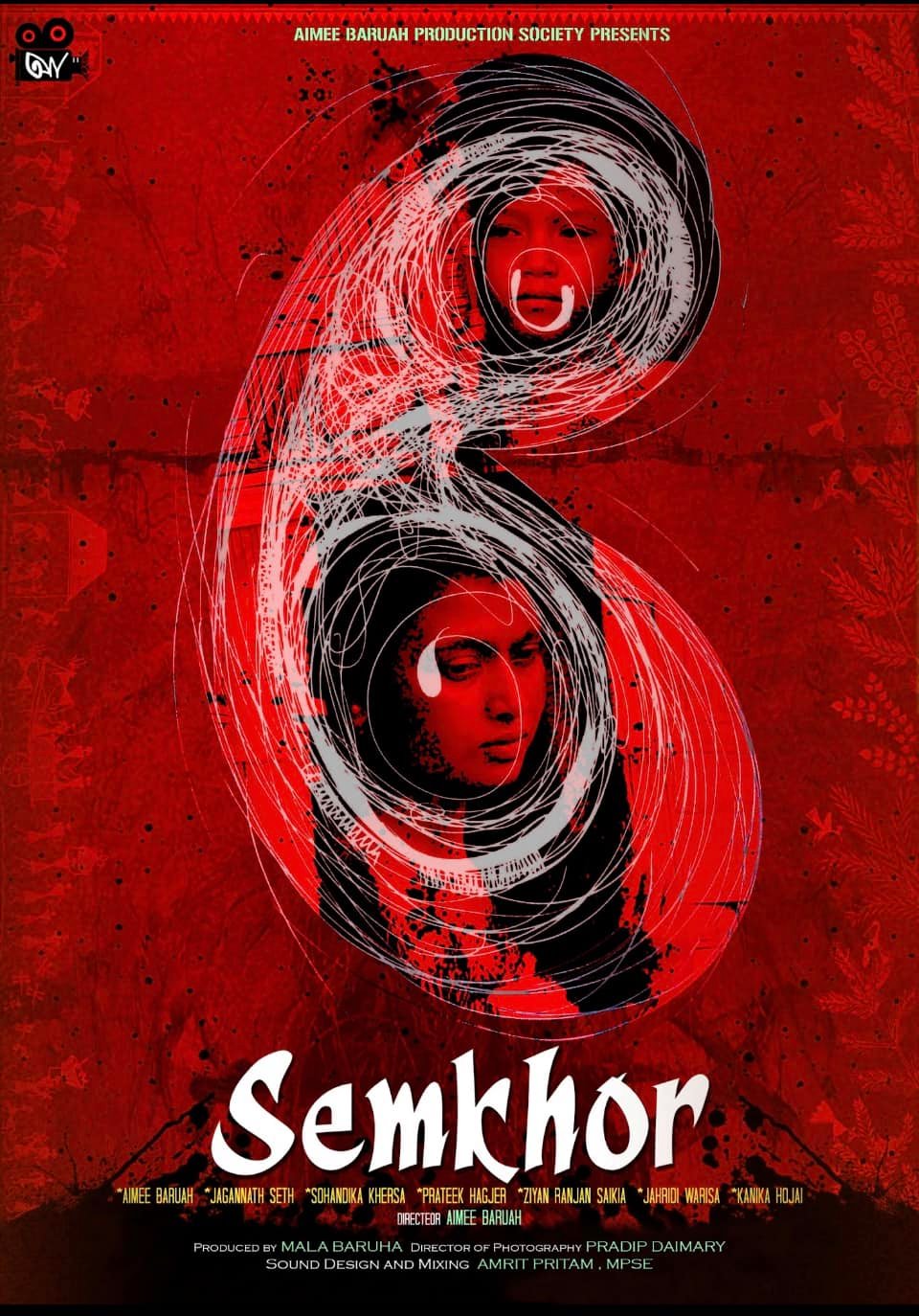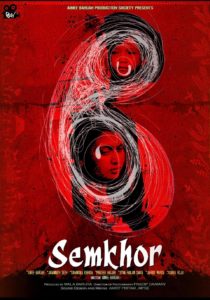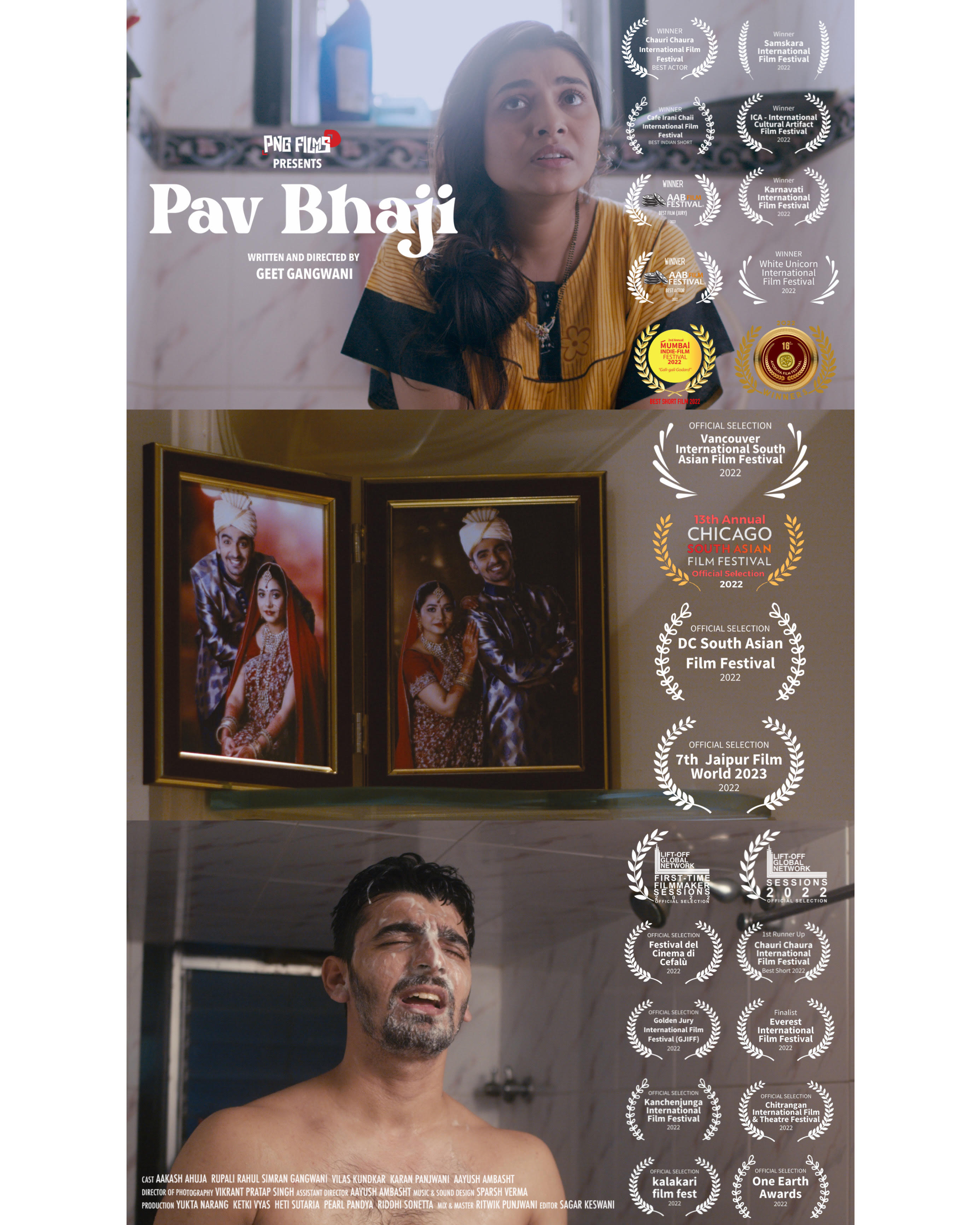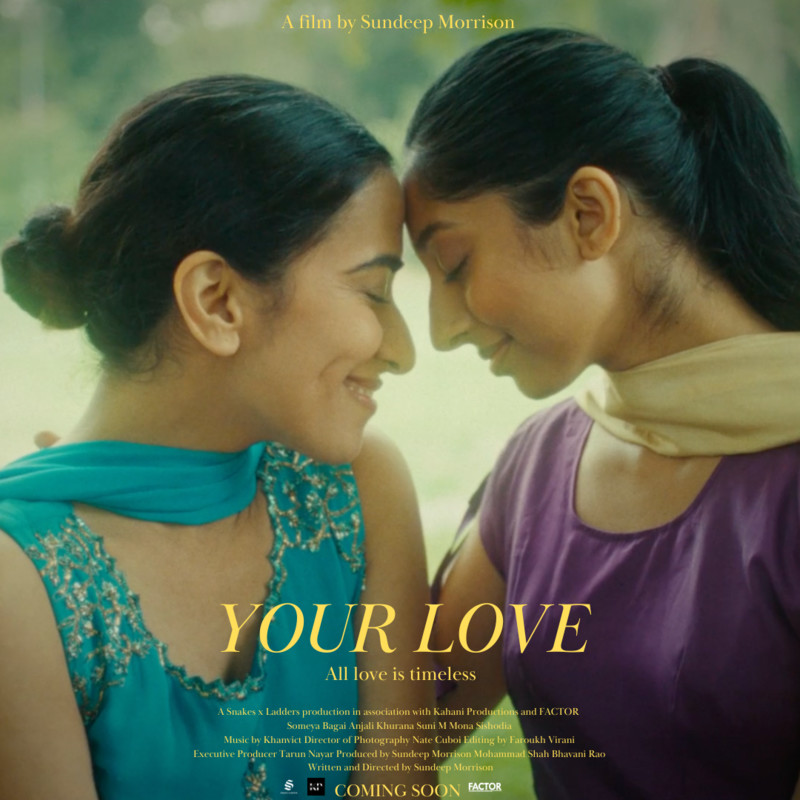
VSAFF 2021 Indie Film Review “Semkhor”
NO TRAILER CURRENTLY AVAILABLE
First, the Recap:
In the name of–. There are countless endings to that phrase, many of which have never seemed to lead to anything legitimately constructive or beneficial, at minimum not to those who find themselves on the receiving end of the actions associated with it. To weather the storms of overt tragedy and/or loss it seems to garner, one takes the risk of being shunned, fully ostracized, or even put to death for a belief in something better that will spark awareness and transformation so many do not wish to entertain. Would you have the fortitude to stand your ground? In the upper northeast State of Assam lies the village of Semkhor. One of a series of established communities, Diro (Jagannath Seth), his wife (Aimee Baruah), sons Daoso (Prateek Hagjer) and Haiso (Ziyan Ranjan Saika) plus daughter Muri (Jarhidi Warisa) reside in humble and relative peace amidst rigid customs and traditions. When Diro goes away to a neighboring village for the Hangseu Busu, events begin to take dark and drastic turns that will reshape his wife, and his family’s legacy, forever.
Next, my Mind:
The first and foremost accolade that should be known about this indie feature film that had its run of showings as part of the 2021 Virtual South Asian Film Festival presented by Toyota USA, supported by AARP, produced by Jingo Ventures, and in association with DFW SAFF & NYC SAFF is that it was a truly momentous occasion, for it became the very first feature film to be released in the Dimasa language. Beyond this initial victory in itself, we are then entreated to one of the most dramatically jarring stories VSAFF 2021 had among its offerings, the other example being the excellently done, similarly unnerving short film “Ek Duaa“. Utterly resolute and unfaltering in its highly awareness-raising thematic directions and messages, it is another unquestionably forceful and profound testament to the sheer, unwavering boldness of indie cinema as this time brought to life by writer/director/producer Aimee Baruah, writers Sasanka Samir, Jintumoni Kalita, and Uday Bhaskar Patar plus producer Mala Baruah.
Hitting you right between the eyes, really from the very start, the narrative fearlessly launches the viewer into what becomes an undeniably weighty, disturbing, and yet riveting (even sporadically stirring) excursion into the concepts of complete loss, harrowing decisions, embittered outlooks, the ways society can be so inhumane in the name of “longstanding custom and tradition”, and the degrees of desperation it drives one to where rebelling against “the standard”, then in turn taking corresponding steps to free oneself from chains of oppression as the only alternative. How this all unfolds over the course of the film leaves you in a consistent state of unease, even during the more “placid” moments, which really are not many. But again, it IS this air of heaviness and the daunting undertaking the wife of the lead character Diro has to encounter through such despair and heart-wrenching trials that gives this film it’s necessary and assuredly intentional plausibility and persuasive foundations to stand on then deliver with equally intense strength to us.
For this critic, it very much brought to mind my reactions to previous South Asian efforts like “Maadathy” and “Anatomy of Violence” where you almost (or flat out DO) find yourself literally uncomfortable taking in what’s being witnessed yet you just cannot deny the legitimacy of purpose, fortitude in execution, and the unmitigated beauty in overall filmmaking it represents as the art form it is. This was very much the case here and I give full props to Baruah and Co. for offering us such a high quality film that isn’t afraid of its darkness or intent, but rather embraces it so that there’s no doubts as to how it IS supposed to affect us and therefore elicit the emotional responses and evocative atmosphere it should. By the time we do arrive at the film’s finale, which by the way was for me exquisitely and distinctively orchestrated, it conveys an ultimate message of, dare we say, HOPE, even if mainly by conjecture, in the chaos proceeding it, and that was an admittedly welcome and timely element to have at that juncture.
The film itself already illustrates to us the skills brought to the table by Baruah as a writer/director/producer, let’s now talk about what happens when she steps in front of the lens, thought it is an established fact we’re talking one of Assam’s most prominent talents. Baruah delivers nothing short in my book than a tour-de-force performance in her role as Diro’s wife, a still younger woman who we can immediately tell isn’t fully happy in the circumstances she’s in, even though she loves her husband and children without question. However, when events occur that so painfully and radically shift her entire existence to unimaginable and relentlessly occurring proportions, she begins to even more clearly see the cruel and unforgiving nature harbored within their people’s practices that cries out for transfiguration. To do so, however, means further consequences, yet how do you punish someone who’s lost so much? It’s a gut-wrenching performance, even when more subtle than blatant, and Baruah navigates it with amazing emotional endurance and poise, not an easy feat given what we watch the character confront. A highly admirable effort and was a heck of a way to be introduced to Baruah for this critic.
With a different manner and delivery that allows for the character to be one you find yourself both loving, then hating, then loving again, Seth does a fantastic job through his role as Diro, a man fully immersed in the cultural and societal conventions, while also having a present love for his children and wife, even if sometimes buried at times in drinking. Upon needing to make the trip to a neighboring village to attend the yearly Hangseu Busu festival, his life path diverges to extremes and the ensuing, forced, but hesitantly accepted separation from his family starts to tie his soul down. When things don’t initially get any better, further decisions could lead to total ruin rather than rectification, and Diro’s journey may have more long-reaching reverberations than he realizes in his quest to simply get back to a family he now appreciates more than ever. Like Baruah, it’s an emotively challenging role, and Seth handles it with the same energy, drive, and rugged poise.
Primary supporting turns arrive through Hagjer, Saika, and Warisa as the couple’s three children Daoso, Haiso, and Muri, all of whom do an excellent job respectively and certainly don’t have easy going roles to digest, as no one escapes the twists in direction the film is consistently taking nor the so often harsh realities of their village life it portrays. But these child actors negotiate it with solid skill. Pranit Langthasa is Thangdao, a man from another village who ends up having a specific and pivotal impact on Diro’s journey to get home. Kanika Hojai plays Thangdao’s wife who seems to empathize with Diro’s plight like her husband does. Additional supporting players appear in the form of Drishant Kemprai, Arup Khersa, Joshadhya Hojai, Marshal Thaosen, Nilitha Langthasa, Bipul Hojai, and Biswajit Haflongbar. It must be brought up again that this film is positively noteworthy across the board for these actors who are sharing a project in their language through a feature film for the first time. Bravo once more to this accomplishment!
So, in total, don’t remotely allow the weightier, darker tone and tenacious anxiety of “Semkhor” dissuade you from viewing it, as there IS that final indication of needed hope awaiting in the end. What I feel impacts you the most is the fact it’s giving us a jolting wake-up call to what human nature is capable of, especially when its actions are dictated by those unwilling to bend to perhaps reassessment of even the most staunch of ceremonies or observances, therefore being open to alternative viewpoints which could actually improve or benefit all of a community or people. If anything, may this just remind us that we do all inhabit this Earth, and with respect to all the different traditions that entails, there isn’t anything wrong with change that encourages ALL people to experience a better, more fulfilling life.
As always, this is all for your consideration and comment. Until next time, thank you for reading!




Egarly waiting for this Movie.